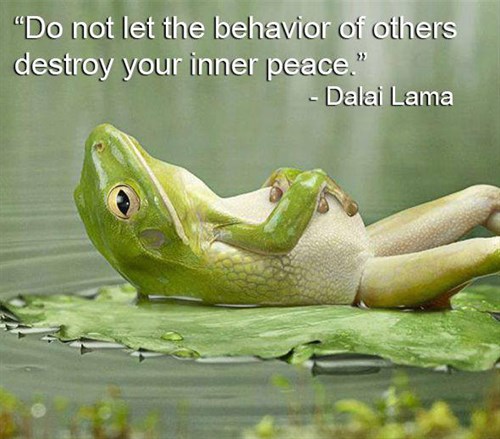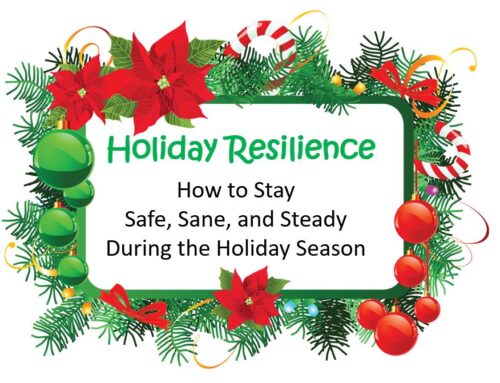“Do not let the behavior of others destroy your inner peace.” – Dalai Lama
I don’t know about you, but sometimes I find the behavior of other people annoying. I’ve no doubt others feel the same about me from time to time.
That being said, the above advice from the Dalai Lama at first seemed wise but simplistic. So as I considered my ambivalence about this quote, I realized that this protection of inner peace is a process, not a stationery state. It means that the annoyances in life purposefully move us away from that deeper, centered place of peace for the purpose of informing us about something that needs to be attended to in ourselves. Our task is to discover what’s going on and to bring ourselves back to inner peace.
When we find ourselves in that snarky, unsettled place where someone else’s behavior is annoying – how do we return to inner peace?
First, let’s talk about what it is not. Returning to inner peace is not . . .
- pretending that the experience isn’t annoying
- pretending that you’re above being annoyed
- blaming or projecting
- being condescending
- posturing as spiritually elite
- medicating or numbing
- avoiding
Rather, dealing with the annoying behavior of others means being honest about how you really feel in response to their choice(s). This is to acknowledge that in some way their behavior left you feeling disrespected, let down, disappointed, harmed, wronged, inconvenienced, at risk, or devalued. Underneath annoyance is always another emotion – usually related to pain or fear.
Allow yourself to be with the emotions stirred in you, because it’s informing you about what you need, what’s important to you, what is of most value to you, and what are your priorities. Remind yourself that though others may not share the same values or perceptions as you, your values are your own, and they are purposeful to your well-being.
Ask yourself if this experience is an external reflection of some aspect of how you are relating to yourself. Are you treating yourself with disrespect, letting yourself down, disappointing yourself, harming or wronging yourself, creating unnecessary inconveniences, ?putting yourself at risk or devaluing yourself in any way. If so, you’ve been given a valuable reminder of where to work in your own mind and heart in relationship to yourself. That will keep you fully occupied. I personally know this to be rue.
More often than not, using these annoying incidences as reflective mirrors for our own growth and maturation is enough to dissipate the annoyance and allow us to return to a place of peace. It also gives us incredibly valuable information for the continued cultivation of our own happiness and satisfaction in life. It teaches us how to treat ourselves well.
If you feel you must approach the person about the annoying behavior – particularly if it is repetitive – then choose your words wisely. Own your own feelings and address specifically how the behavior is impacting you. Be prepared for the other person to be defensive, and let them share their perspective. Stay open to understanding. You’ll probably learn something about the other person and most certainly about yourself. Offer alternatives or negotiate.
Sometimes others will not be willing to take responsibility nor consider adaptation. At that point, you must choose to let go and release. Let go of the fantasy of making someone else be what you want them to be. You may need to find a new setting, a new relationship, or a new strategy. Avoid helplessness. Take thoughtful action. You are fully in charge of your own thoughts, feelings, and choices. Avoid making any significant decisions from a place of anger; always return to a place of inner peace, for there is your greatest position of clarity and empowerment.






